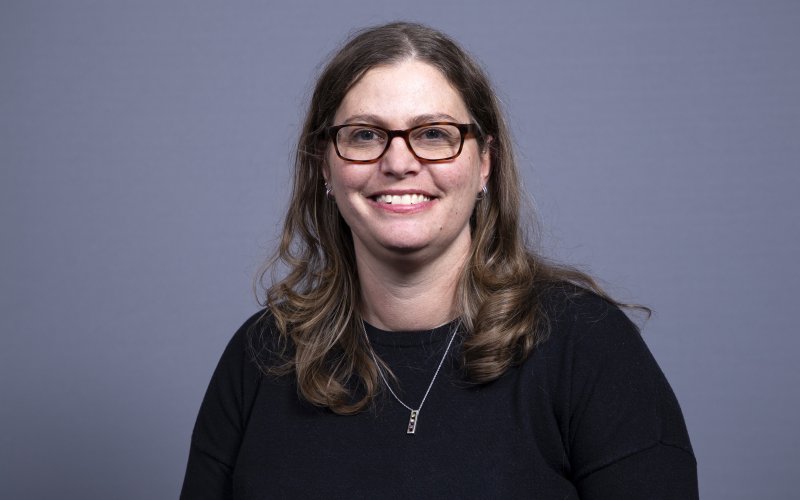Training the Next Generation of Public Health Leaders—5 Questions with Dr. Rachel de Long

The UAlbany School of Public Health offers a unique educational opportunity for clinical practitioners called the Fellowship in Applied Health (FAPH). We sat down with Dr. Rachel de Long, Director of the FAPH program, to talk about the intersection of clinical practice and public health and why opportunities like this fellowship are so important.
First, could you explain what the Fellowship in Applied Health is, and who is eligible to apply?
Our Fellowship in Applied Public Health (FAPH) is a program that supports licensed advanced clinical health care professionals – such as physicians, nurse practitioners, or veterinarians – to become leaders in public health practice. Because of our unique partnership with the NYS Department of Health, our program especially focuses on preparing clinicians for leadership roles in state and local government. Fellows earn their MPH degree along with a full year of hands-on practicum experience at the state DOH and a local health department. They also benefit from a lot of individualized professional development, mentoring, and networking support. Our graduates are ready to step into leadership roles. The FAPH is a great opportunity for anyone who sees themselves in this description, whether they are early in their career or ready to make a change.
What made you decide to go into public health after you finished medical school?
In medical school I planned to be a primary care clinician in a rural community, and I started my residency training in family practice. I found that while I loved engaging with patients and their families, I did not enjoy being in a clinical care setting – especially inpatient. I was most interested in behavioral health, prevention, and bigger picture thinking about community health and social policy. At the same time, I had started my own family (our first son was born during medical school, our second after my first year of family practice residency), and I knew I wanted a career that would offer better work-life balance. After doing some research, I found my way to the Preventive Medicine Residency at UAlbany and NYS Department of Health. Since then, I haven’t ever looked back.
What strengths do you think physicians and other advanced practice professionals bring to the field of public health?
Everyone has different strengths, but there are many aspects of medicine and clinical training that are assets for public health. Fundamentally, healthcare is based in a commitment to caring about and for others. Clinicians have direct experience witnessing and supporting individuals and families who are on the receiving end of our programs and policies, and so they bring a sense of what the impact of those policies looks like on the ground, so to speak. Clinicians should also be excellent communicators who have honed the skill of engaging with many different people of different backgrounds and knowledge levels. They also should have well-developed critical thinking and problem-solving skills and the ability to make tough decisions under pressure. Many clinicians are used to functioning leaders of a team, and hopefully also have an appreciation for working as members of a multi-disciplinary team with respect for the expertise and perspectives that everyone brings to the table.
What did you do as a public health physician at New York State Department of Health?
After completing the NYS Preventive Medicine Residency (a.k.a. “PMR”, the predecessor to our current FAPH program) in 2003, I became the Medical Director of the Bureau of Child and Adolescent Health at NYS Department of Health. My role was to support statewide public health programs and policy initiatives by providing clinical and public health guidance and serving as a liaison to external professional medical organizations and clinical providers. Later, I became the Director of that same bureau, and over the next 15 years I served in a progression of leadership roles. Those positions still required me to draw on my medical training, with the addition of significant management and supervision responsibilities: leading and supervising staff, overseeing budgets and spending plans, developing strategic plans, new program models, policy proposals, and grant applications, and representing the Bureau and Division within and outside the department.
What other kinds of leadership roles could fellows take on after completing the FAPH?
FAPH fellows who go on to work in the NYSDOH may serve in similar roles like medical director or director of a large public health program or organizational unit. These types of positions are needed across the health department and vary widely in focus, from surveillance, evaluation, research, and statewide quality improvement initiatives, to developing and implementing community-based programs or policy initiatives. Fellows may also fill leadership roles in the state Medicaid program or the companion Office of Quality and Patient Safety. At the local level, fellows may serve as a county commissioner of health or local health department director. Of course, fellows can also pursue leadership roles outside of government. Among our recent FAPH graduates, one is a medical director at a regional managed care organization, and another is an associate medical director at a large university's student health services.
Usually we only ask 5 questions - but we have one more! What qualities or skills are most important for effective leadership in public health?
I think there are lots of ways to be a great leader. Some qualities and approaches that resonate with me personally are transparency, communication (which includes listening!), kindness, and leading by example. Because public health is so broad, it helps to be competent in multiple skill areas - data, program development and implementation, policy, etc. – and to have intellectual curiosity for a wide range of topics. You don’t need to be an expert on everything, but you need to be able to communicate and collaborate effectively with people in many disciplines and sectors.


